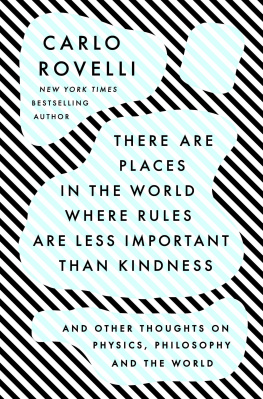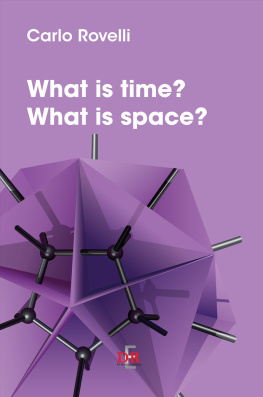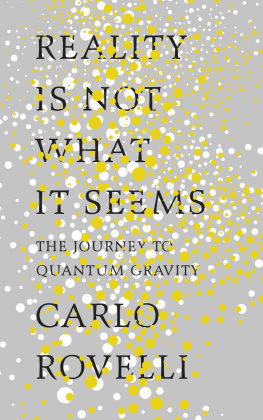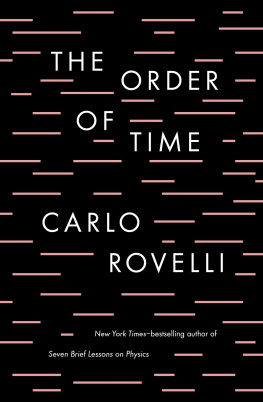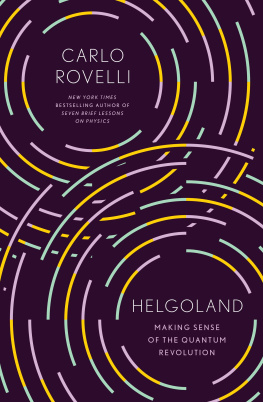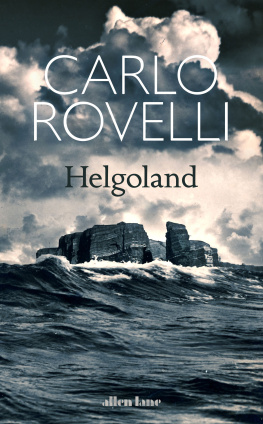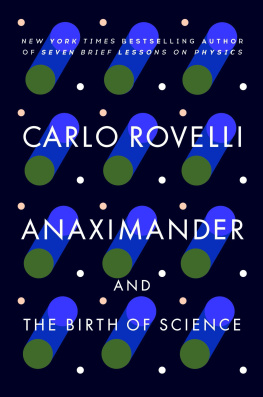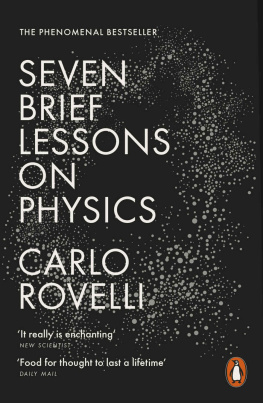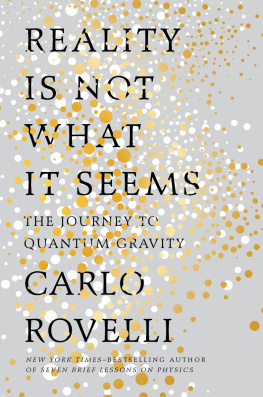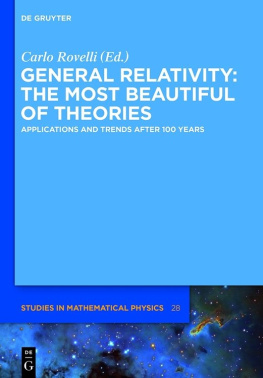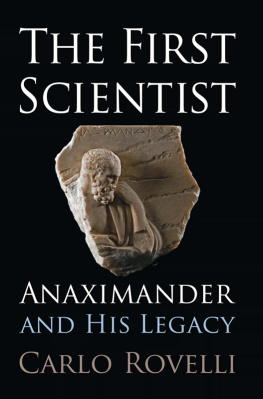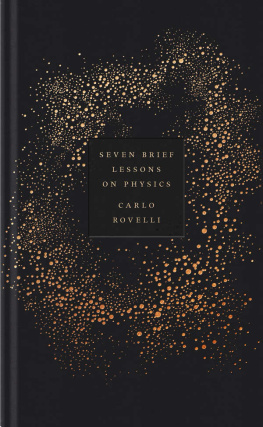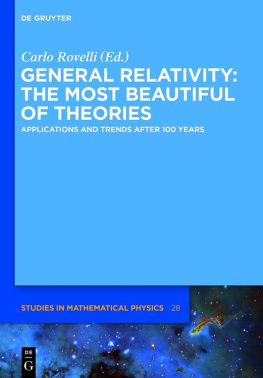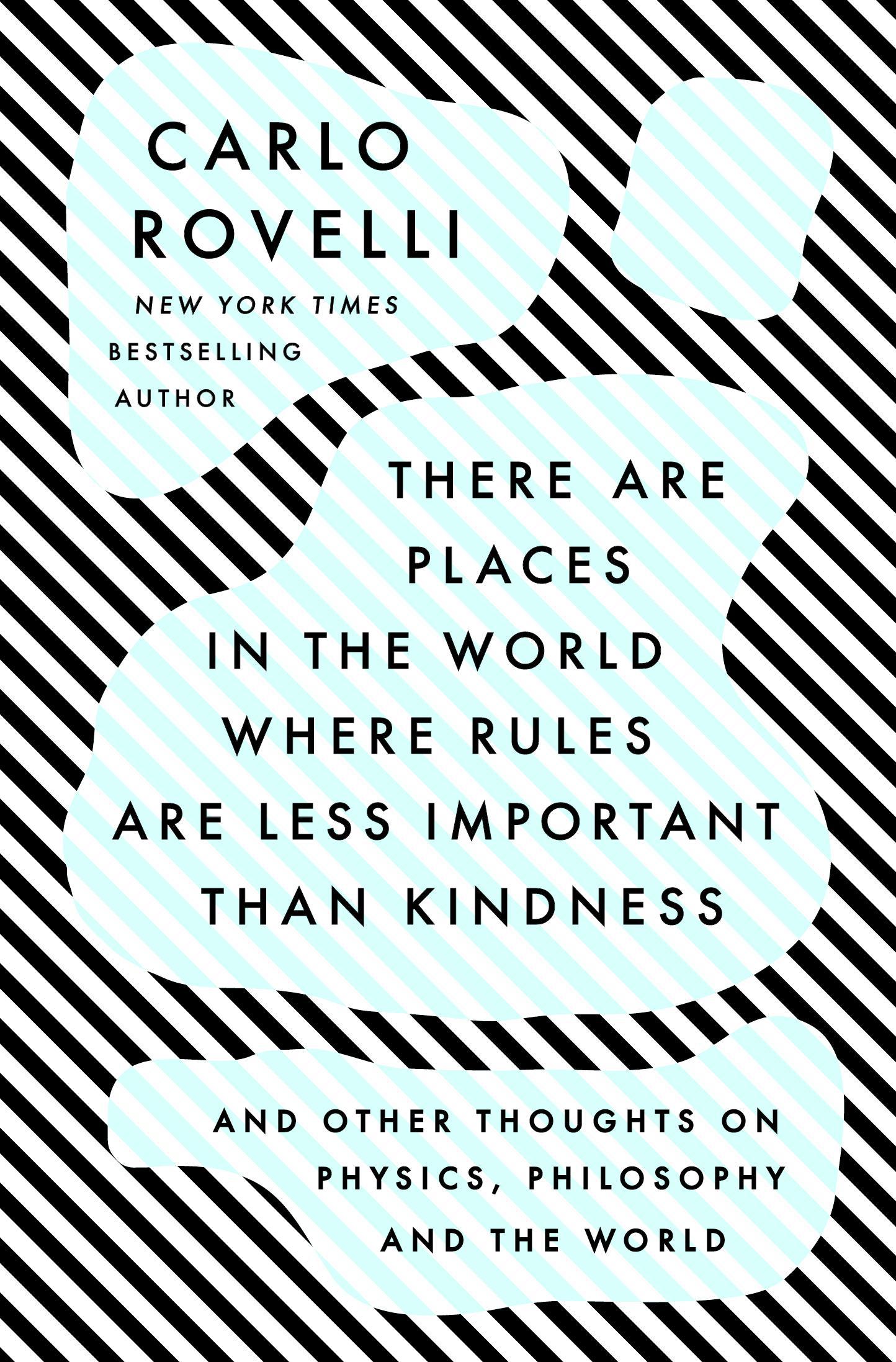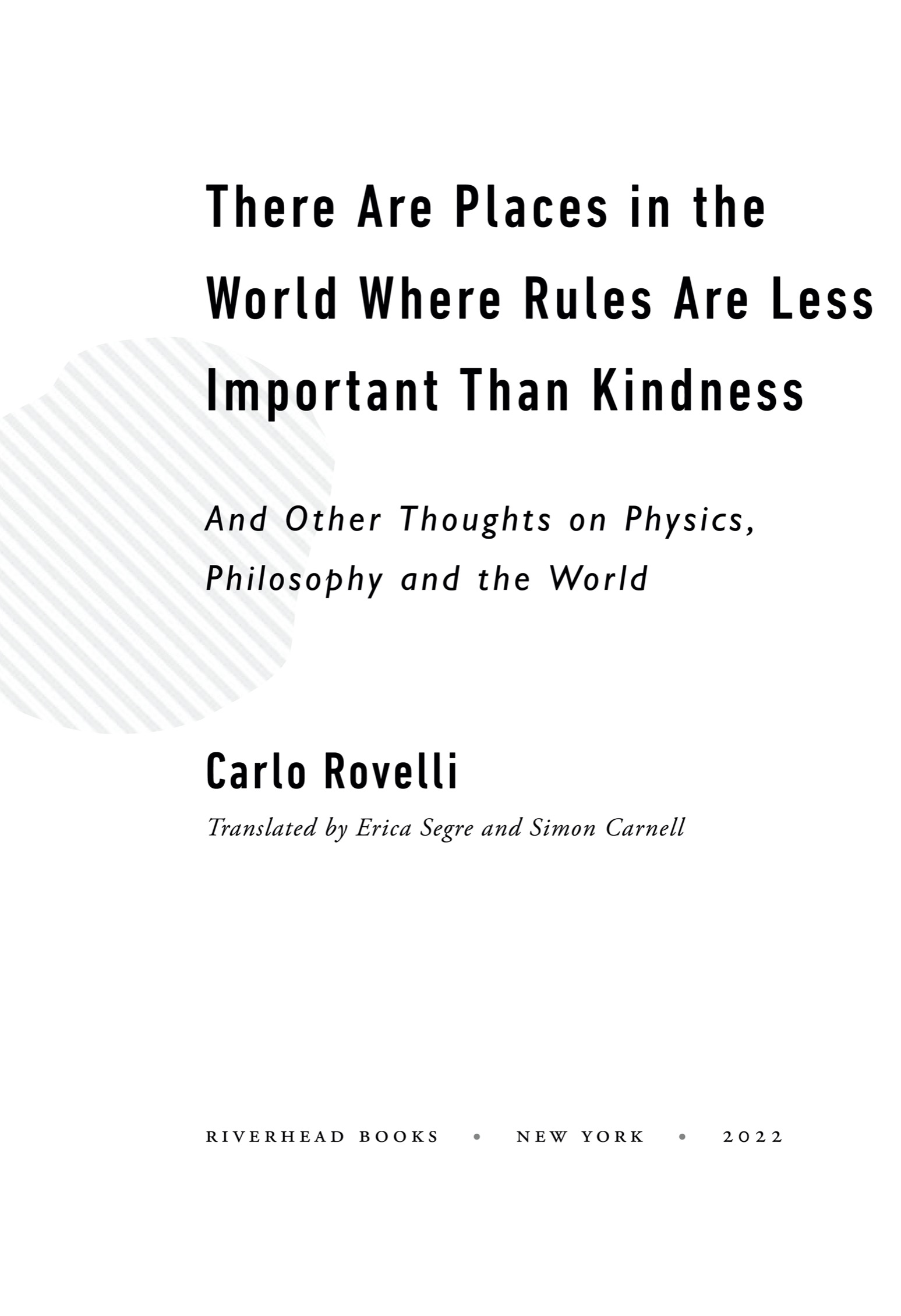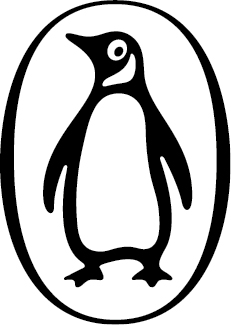First published in English in Great Britain by Allen Lane, an imprint of Penguin Random House Ltd., London, 2020
Penguin supports copyright. Copyright fuels creativity, encourages diverse voices, promotes free speech, and creates a vibrant culture. Thank you for buying an authorized edition of this book and for complying with copyright laws by not reproducing, scanning, or distributing any part of it in any form without permission. You are supporting writers and allowing Penguin to continue to publish books for every reader.
Riverhead and the R colophon are registered trademarks of Penguin Random House LLC.
All of the articles contained within this work were originally published in Italian. Exact publication information can be found in the table of contents.
Names: Rovelli, Carlo, 1956 author. | Segre, Erica, translator. | Carnell, Simon, 1962 translator.
Title: There are places in the world where rules are less important than kindness : and other thoughts on physics, philosophy and the world / Carlo Rovelli ; Translated by Erica Segre and Simon Carnell.
Other titles: Ci sono luoghi al mondo dove pi che le regole importante la gentilezza. English
Description: New York : Riverhead Books, 2022. | Originally published in Italian by RCS Media Group S.p.A., Milan, 2018. page verso.
Identifiers: LCCN 2021038390 (print) | LCCN 2021038391 (ebook) | ISBN 9780593192153 (hardcover) | ISBN 9780593192177 (ebook)
Subjects: LCSH: SciencePopular works. | ScienceSocial aspectsPopular works.
Contents
Corriere della Sera, October 19, 2015
Domenica, Il Sole 24 Ore, February 8, 2015
La Lettura, Corriere della Sera, March 19, 2017
Domenica, Il Sole 24 Ore, June 19, 2015
Corriere della Sera, February 15, 2017
Domenica, Il Sole 24 Ore, March 30, 2012
Domenica, Il Sole 24 Ore, October 17, 2010
Domenica, Il Sole 24 Ore, January 20, 2013
Corriere della Sera, November 7, 2016
Corriere della Sera, August 30, 2016
La Lettura, Corriere della Sera, September 29, 2017
La Repubblica, July 20, 2014
La Repubblica, April 11, 2015
Domenica, Il Sole 24 Ore, April 1, 2012
Domenica, Il Sole 24 Ore, August 12, 2012
Corriere della Sera, February 21, 2016
Corriere della Sera, January 2, 2018
The Guardian, July 25, 2018
La Lettura, Corriere della Sera, February 10, 2016
La Lettura, Corriere della Sera, February 10, 2016
La Lettura, Corriere della Sera, January 27, 2016
La Lettura, Corriere della Sera, March 8, 2017
La Lettura, Corriere della Sera, February 12, 2017
La Repubblica, March 6, 2014
Domenica, Il Sole 24 Ore, March 6, 2013
Domenica, Il Sole 24 Ore, December 14, 2014
La Lettura, Corriere della Sera, December 8, 2017
Corriere della Sera, August 13, 2016
Domenica, Il Sole 24 Ore, August 10, 2014
Domenica, Il Sole 24 Ore, August 17, 2014
Domenica, Il Sole 24 Ore, August 24, 2014
Corriere della Sera, October 4, 2017
Corriere della Sera, June 24, 2018
Domenica, Il Sole 24 Ore, December 18, 2011
Swiss Italian Radio (RSI), Christmas Eve, 2015
Corriere della Sera, December 5, 2015
La Lettura, Corriere della Sera, March 28, 2017
Domenica, Il Sole 24 Ore, June 17, 2012
La Lettura, Corriere della Sera, October 11, 2016
Domenica, Il Sole 24 Ore, September 18, 2011
Facebook, April 16, 2018
Corriere della Sera, November 25, 2016
Domenica, Il Sole 24 Ore, June 22, 2014
La Lettura, Corriere della Sera, January 31, 2016
Corriere della Sera, January 7, 2016
inews.co.uk, April 20, 2020
Preface
An article in a newspaper has something in common with a Japanese kan or a European sonnet: limited in size and form, it can transmit little more than one piece of information, a single argument, one reflection, a single emotion. And yet it can speak about everything and anything.
The pieces collected here, which were published in various newspapers over the past decade, speak of poets, scientists and philosophers who have influenced me in some way, of travels, of my generation, of atheism, of black holes, telescopes, psychedelic experience, intellectual surprises... and much else. They are like brief diary entries recording the intellectual adventures of a physicist who is interested in many things and who is searching for new ideasfor a wide but coherent perspective.
The title has been borrowed from a phrase used in one of the articles: a phrase that perhaps conveys something of the spirit shared by these articles. Then again, perhaps it just reveals the spirit of the kind of world that I would like to live in....
Marseille, 2020
Aristotle the Scientist
October 19, 2015
Do objects of different weight fall at the same speed? At school we are told that, by letting balls drop from the Tower of Pisa, Galileo Galilei had demonstrated that the correct answer is yes. For the preceding two millennia, on the other hand, everyone had been blinded to the fact by the dogma of Aristotle, according to which the heavier the object, the faster it falls. Curiously, according to this story, it seems never to have occurred to anyone to test whether this was actually true before Francis Bacon and his contemporaries began observing nature and freed themselves from the straitjacket of Aristotelian dogmatism.
Its a good story, but theres a problem with it. Try dropping a glass marble and a paper cup from a balcony. Contrary to what this beautiful story says, it is not at all true that they hit the ground at the same time: the heavier marble falls much faster, just as Aristotle says.
No doubt at this point someone will object that this happens because of air, the medium through which the things fall. True, but Aristotle did not write that things would fall at different speeds if we took out all the air. He wrote that things fall at different speeds in our world, where there is air. He was not wrong. He observed nature attentively. Better than generations of teachers and students who are prone to take things on trust, without testing them for themselves.

